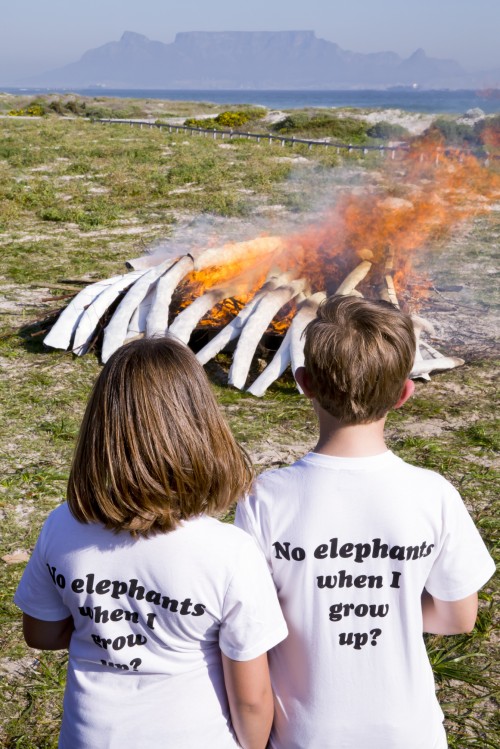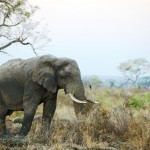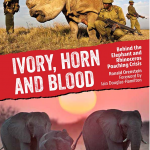by Martina Polley, Conservation Action Trust

Cape Town, South Africa (August 12, 2014) – All over the world today, people who care are paying homage to the greatest of earth’s animals: the Elephant.
In Cape Town, conservationists, sports stars and celebrities gathered in Blaauwberg Nature Reserve to celebrate World Elephant Day by igniting a fire of mock ivory against the backdrop of Table Mountain to raise awareness of the ongoing slaughter of African Elephants. They may face extinction in the wild with at least 20,000 elephants killed for their tusks last year, although many conservationists believe the death toll to be far higher.
“The Cape Town Burn pays homage to the tens of thousands of elephants who have died needlessly to satisfy greed and fashion. It also commemorates the Kenyan ivory burn of 1989 when the Kenyan government incinerated 12 tons of seized elephant tusks in an effort to persuade the world to ban the international trade in ivory, ” says Francis Garrard of the Conservation Action Trust.
It was shortly after the Kenyan burn that the international ban on the trade in ivory was implemented, leading to almost twenty years of respite from poaching for elephants. Elephant numbers slowly grew again, however two CITES sanctioned sales of ivory by Southern African states in 1999 and in particular 2008, sparked a massive surge in poaching.
Investigations have established that the stockpile sales created confusion among consumers in China, who believed the ivory trade was legal, effectively breaking the integrity of the ban. The influx of legal ivory into the market in China simply spurred demand, pushed up prices and created a grey market in which legal ivory provides outlets and opportunities for illegal ivory to be sold.
Dr. Elizabeth Bennett in her recent paper, Legal Ivory Trade in a Corrupt World and its Impact on African Elephant Populations, states categorically that “If we are to conserve remaining wild populations, we must close all markets because, under current levels of corruption, they cannot be controlled in a way that does not provide opportunities for illegal ivory being laundered into legal markets.”
“The insatiable demand for ivory as a status symbol and investment commodity now threatens the very survival of elephants in many countries, with governments including our own continuing to accumulate stockpiles of ivory, perpetuating the concept that there is a commercial value for ivory and elephants continue to pay the price,” concludes Garrard.




